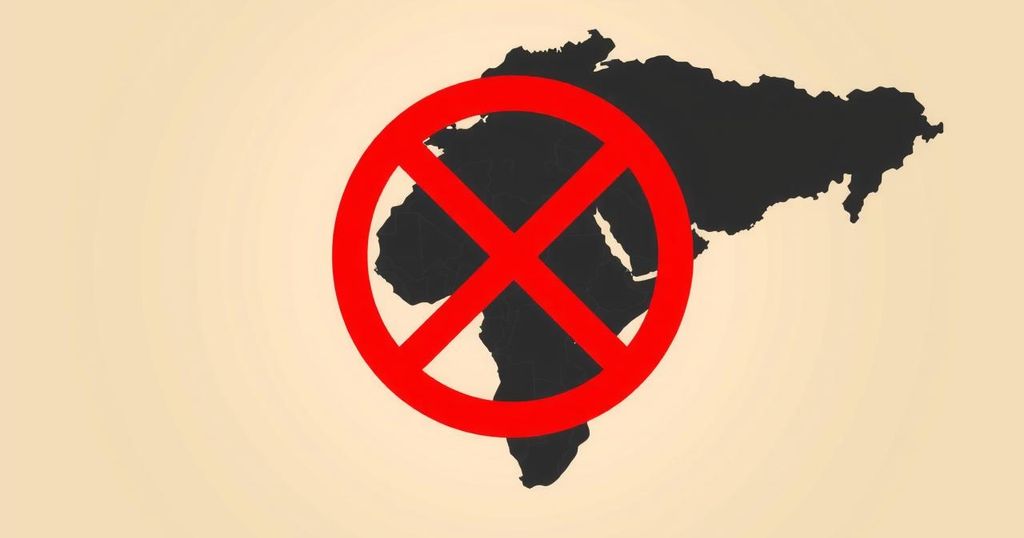Politics
& AGRICULTURE, AFRICA, AFRICA INTELLIGENCE, BELGIUM, BRUSSELS, CGEM, CONFÉDÉRATION GÉNÉRALE DE ENTERPRISES DU MAROC, CONFEDERATION GENERALE DE ENTERPRISES DU MAROC, CORRUPTION, DANISH PUBLIC AFFAIRS, DEMOCRACY, EU, EUROPE, EUROPEAN COURT OF JUSTICE, EUROPEAN UNION, IMMIGRATION, LONDON, MOROCCAN, MOROCCO, NORDIC ME, REGULATIONS, RP, RUD PEDERSEN, SAHARA, UN, UNITED KINGDOM, WESTERN SAHARA
Marcus Li
0 Comments
The Ethical Implications of Lobbying for Morocco: A Stand by Nordic MEPs
Nordic MEPs condemn the Danish lobby firm Rud Pedersen for representing Morocco, an occupying power seeking to exploit resources from Western Sahara. They articulate a strong opposition to the firm’s lobbying efforts and declare refusal to engage with RP until it severs ties with the occupation. This stance reflects a broader commitment to uphold ethical standards and international law.
The ethical implications of collaborating with an occupying force are significant, especially when such actions heighten global instability. Engaging in lobbying activities intended to facilitate an occupying power’s market access for the exploitation of natural resources from occupied territories is particularly troublesome. The Danish Public Affairs firm Rud Pedersen (RP) has come under scrutiny from Nordic Members of the European Parliament (MEPs) for its role in lobbying for Morocco regarding contentious trade and fisheries agreements with the European Union (EU).
Initial expectations of RP maintaining ethical standards have been shattered, as it has been reported that Morocco hired RP for lobbying purposes. The outlet Africa Intelligence revealed the engagement of RP by the Confédération Générale de Enterprises du Maroc (CGEM), which maintains strong ties with the Moroccan government. Notably, RP employed the daughter of Morocco’s foreign minister, highlighting the potential conflict of interest.
Despite the involvement of CGEM in the contract, RP remains accountable for the ultimate objective of their lobbying efforts. RP’s mandate to lobby on “trade & agriculture” raises concerns, particularly regarding Morocco’s attempts to negotiate agreements that include resources from Western Sahara, a territory classified as illegally occupied by both the EU and the UN. The European Court of Justice, in a ruling reaffirmed on October 4, 2024, invalidated previous agreements concerning Moroccan fisheries and trade, emphasizing the illegality of profiting from occupied resources.
Crucially, the exploitation of goods from illegally occupied territories contradicts the principles guiding EU trade agreements. As such, RP’s actions may inadvertently facilitate attempts to bypass EU regulations relating to Western Sahara, indicating a potential disregard for significant legal precedents. The prolonged occupation and repression of Western Sahara by Morocco is irrefutably illegal and recognized as a non-self-governing territory by the UN.
As political representatives of the Left, the MEPs firmly stand against these exploitative practices. They communicated their condemnation to RP, asserting that their lobbying activities in favor of an occupying power breach moral guidelines and contradict the ethical reputation of Nordic politics. Consequently, they declared their refusal to engage with RP on all matters, not just those connected to Morocco and Western Sahara. These representatives aim to mobilize their colleagues in the European Parliament to adopt a similar stance against the normalization of dominance and exploitation.
While businesses may choose their clientele, politicians equally possess the right to determine the ramifications of such choices. The Left MEPs strongly advocate for RP to sever all ties, both direct and indirect, with Morocco’s illegal occupation of Western Sahara, confirming their intention to maintain RP on their blacklist until such actions are taken.
In summary, the Nordic MEPs’ stance against Rud Pedersen’s lobbying for Morocco highlights significant ethical concerns regarding engagement with occupying powers. Their refusal to collaborate with RP on any issues reiterates their commitment to upholding international law and opposing exploitation in occupied territories. The emphasis is placed on the necessity for accountability, urging RP to dissociate from illegal activities that undermine both national and international standards.
Original Source: euobserver.com




Post Comment